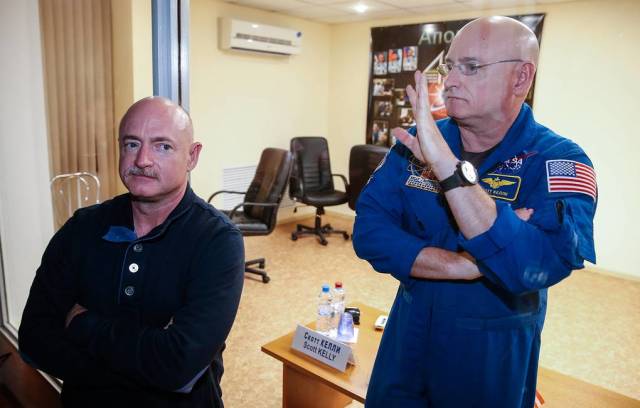Such violations can lead to malfunctions in the liver or heart
TASS, November 25. Observations of twin astronauts Scott and mark Kelly and dozens of other ISS crew members have shown that after a long life in space, a person may begin to have problems with the operation of mitochondria - the main power stations of the cell. The article with the results of the work was published by the scientific journal Cell.
"If a person is in zero gravity for a long time, their bone and muscle mass decreases, and there are disorders in the immune system, heart and liver. We wondered if there might be one common cause for all this. Our observations have shown that these problems may be due to the fact that weightlessness disrupts the mitochondria," said Afshin Beheshti, one of the authors of the study, a medic from the NASA Ames Research center (USA).
Four years ago, astronauts Scott and mark Kelly, identical twin brothers, participated in the unique Twins Study experiment, in which Scott spent an entire year in orbit, while his brother mark lived in similar conditions on Earth. After receiving blood and other tissue samples from both astronauts before Scott's flight to orbit and after his return to Earth, scientists tried to find out how life in orbit affects human health.
After studying these samples, scientists, in particular, found that telomeres, the end sections of chromosomes, in space have become longer. Thanks Scott from a biological point of view was slightly younger than his brother. In addition, the work of about 7% of its genes has significantly changed. After returning to Earth, the work of genes returned to normal, and the length of telomeres decreased. Scientists do not yet know why this happened.
The results of these observations helped Beheshti and his colleagues discover another unusual effect that is associated with long life in space. It can be the cause of many other health problems for people who have visited the ISS.
Consequences of life in space
Beheshti and his colleagues studied how space flight changed the work of various tissues of the mouse body at the cellular level. They monitored how protein concentrations and gene activity changed after a few weeks of living in zero gravity.
"We compared the tissues of mice that had been in space during two different expeditions to the ISS, and noticed that their cells often had problems with the work of mitochondria. They also recorded failures in the liver. When we began to study these animals in detail, we found that the dysfunction of this organ was also associated with mitochondria. Similar problems were observed in the cells of their eyes, which is why we studied in detail the work of mitochondria in space, " explained the NASA specialist.
Guided by similar considerations, doctors studied data collected during observations of Scott and mark Kelly, as well as five dozen other ISS crew members who lived on the station for a long time. It turned out that the work of the astronauts ' mitochondria was disrupted in much the same way as in mice. This led to the fact that in different types of cells, their work was either overly activated or suppressed.
Studying these failures helped scientists explain some of the abnormalities in the work of Scott Kelly's immune cells, which doctors discovered immediately after his return to Earth in 2016. Scientists have also linked many disorders in the heart and blood vessels of other astronauts to mitochondrial dysfunction.
The discovery of this feature of life in zero gravity, as Beheshti notes, opens the way to testing whether various tools developed to combat mitochondrial disorders can suppress these negative effects from long - term life in space. Scientists hope that in the near future they will be able to test this hypothesis in experiments on both animals and cell cultures.

